"My aim is to give them an education that will make them proud of their culture. These people should grow up proud of their grandfather's culture, not shunning it." - Baba Amte
Education is the key to lead towards social and economic development. And, we are aware that education does not happen in an isolated manner, it has to be woven with life threads, namely local environment, socio-cultural legacy and individual aspirations. This philosophical understanding inspires us to set up an educational complex at Jinjgaon village, around 25 km from LBP campus, Hemalkasa (District Gadchiroli, Maharashtra).
This educational complex - Lok Biradari Shiksha Sankul - shall gradually grow up embracing multiple institutions, interfacing with each-other, in a campus based at Jinjgaon village. Since, as mentioned above, education must be holistic and it should be rooted in local environment of the learners, the school education will be closely linked with apprenticeship, entrepreneurship and local communities.
Sankul shall serve children, youths, women, local artists and artisans, in a way entire community around.
This will also be a model of a sustainable life, particularity for the people around the globe who realize that the so-called modern lifestyle is unsustainable, and leading us to the global warming, social chaos and trapped us in the vicious circle of consumerism-inflation-depression. Therefore the Sankul shall be a model of a lifestyle which is sustainable, self-reliant and is rooted in the community and the ecology around.
In its true sense, it will be a place for mutual learning and sharing among literate & non-literate, rural & urban, tribal & non-tribal ... everybody will come here to learn something to teach something as well, acknowledging and respecting each-other. As, while articulating the dream of new India, Baba Amte has said, "From the most ancient times, it has been recognized that any orderly community or nation must have two pillars: Mutual recognition of rights and Mutual cooperation for the common good. The New India will pay special attention to the strengthening of these two pillars."
Lok Biraradari Shiksha Sankul will grow gradually and organically. There could be a few initiatives seeded with its inception. These shall be:
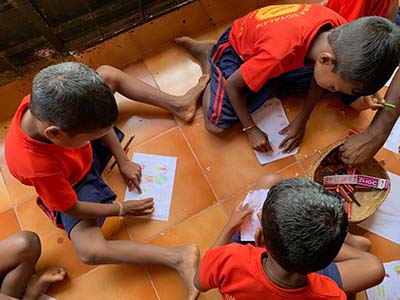
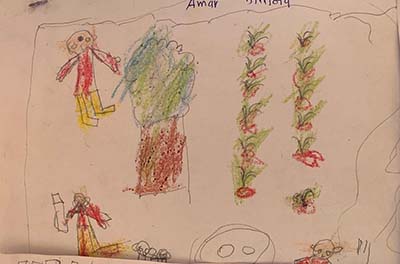
Lok Biradari Shiksha Sankul will be a multidimensional complex to serve the needs of local communities. Hence, our approaches towards it would be dynamic and pluralistic in nature. At one hand, we shall focus to value and carry on traditional knowledge of nutrition, art and craft, we will also introduce latest literature available for academic disciplines, knowledge generation and for pleasure of reading itself; we may use indigenous methods for food processing, preservation and oil extraction as well as computer training and its use for the betterment of the local community.
To summarise, we can say that our approach would be to preserve and celebrate indigenous knowledge and the values behind it, with conscientious use of present day methods and technology.
Our motto is: "Charity destroys, work build up a person." Hence, our efforts would be to utilise local resources, appropriate technology and to help young women and men to become skilled entrepreneurs.
Every endeavor needs resources to sustain, flourish and to adorn; so it can become an expendable model for rest of the world. Apparently, its sustainability depends on the resources the model can generate within itself, but as we know, every innovation and experiment requires support from outside, particularly in terms of finance, Lok Biradari Shiksha Sankul shall look at both the directions simultaneously. Hence, we will explore and identify resources available around us and also seek support in various ways from our well-wishers and like-minded organisations.
Here, we have jotted down a few types of resources we are looking for:
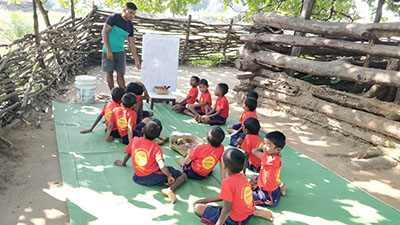
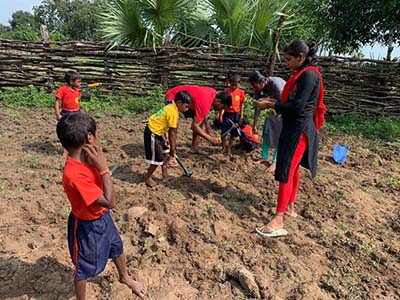
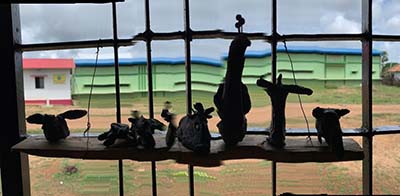
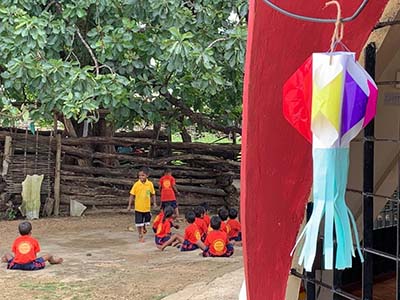
Impact of education manifests in each and every field of life, it brings about qualitative change in life; at the same time, it is hard to measure it in quantitative manner. As we visualize, our frontmost aim is to bring about a qualitative change in the life of the people in this area, that will reflect in terms of economic stability, level of awareness about self and society and an avidity towards school education of the young generation. As eminent scholar Amartya Sen says: "Human development, as an approach, is concerned with what I take to be the basic development idea: namely, advancing the richness of human life, rather than the richness of the economy in which human beings live, which is only a part of it."
We would like to set a few quantitative milestones for ourselves, that might help us keep on track, guide our journey and to give us a sense of achievement as well as of challenge.
For the first phase of next five years, we promise ourselves to: